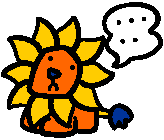
----------------------------------------------------------
#13 我々が家畜を屠殺するために育てることをやめたらこうした
動物が存在しなくなってしまうのではないでしょうか?
----------------------------------------------------------
この質問の解釈の仕方は二通りあります。ひとつは質問者が「動物」
を種としてとらえている場合です。その場合この議論は次の様に言う
方がより正確です:
「牛の生態的地位(*)は家畜としてのものである;人間は牛を
利用し、その見返りとして牛は生態的地位を手に入れ生きのび
る事が出来るのである」
もうひとつは質問者が「動物」を個体としてとらえている場合です。
その場合は次の様になるでしょう:
「我々が食べるために育てている個々の牛はもし私達が育てなけ
れば命を与えられる事はなかったはずだ」
ここではまず最初に種としての解釈に基づいて議論しその後、個体
としての解釈の議論に移ります。質問者はおそらくすべての家畜の種
類に対して言っているのだと思いますが議論をより具体的なものにす
るために以下の文では牛を例としてとりあげます。
牛は人間が消費するために飼育しているから絶滅しないのだという
主張は正しくはありません。
まず第一に今日でも、インドの多くの場所において、或いはその他
の場所において人間と牛はお互いを助けあい尊重する関係を築いてい
ます。人類の歴史の中で見れば、こうした関係が崩壊し今日の様に人
間が牛を一方的に搾取する様になったのは近年になってからの事です。
牛の生態的地位を屠殺され搾取される事と絶滅する事の中間に見い出
すことは間違いなく可能なことなのです。
(興味のある方はジェレミー・リフキンの『Beyound Beef』がこのテー
マについて多くの事を教えてくれますので読まれるといいでしょう)
更に動物を絶滅から救う事業をしている団体がいくつも存在している
という事実があります。牛が絶滅を救うべき動物から除外されるだろう
という根拠は何もありません。
種を保存しているという主張は次の意味においても破綻しています。
すなわち人間の集約的畜産は他の種の生息地を破壊し絶滅に追いやっ
ているという事実です。例えば、牧場にするために熱帯雨林を開墾し
たため数知れぬ種が絶滅に追いやられました。
牛の飼育は6つの大陸で動物の生息地を破壊し続けています。この
質問者はどうしてそんなに牛の種の保存を気にかけているのにその他
の種の保存にはまるで無関心なのでしょうか? もしかしてそれは質
問者が肉を食べ続けたいと思っている事と何か関係があるのでしょう
か?
最後にこうした種の保存という議論に対しては倫理的な理論から有
力な反論もできます。この質問者の理屈を押し進めるとどこに持って
いっても非難される様な行為を支持しろということになってしまいま
す。例えばある特定の人種が奴隷としてのみ存在している社会を想定
してみましょう。その社会ではこの人種は奴隷として使ってやらなけ
れば絶滅してしまうんだから自分達のやっていることに問題はないと
主張しているとします。
皆さんはその理屈を受け入れることが出来ますか?
さてそれでは動物を個体として解釈する場合の議論に移ります。
この理屈に対しては次の様に答えることができます。
「悲惨な生活を送り早くに死んでしまうために生まれてくるくらい
なら生まれて来ない方がましである」
たいていの人に対してはこう言うだけで十分でしょう。しかし死ぬ
前の生活が必ずしも悲惨なものとは限らないではないかと反論する人
がいるかもしれません。
「仮に牛が苦痛なく殺されて食べられるまではきちんとした扱いを受
けているとする。そうした牛は人間が消費するために飼育しなければ
その短い人生を楽しむこともなかったのではないか? その上、命を
奪う事を新たな命を生み出す事で償うとすればどうなんだ?」
ピーター・シンガーは当初、生まれる順番を待っている牛の魂があ
るわけじゃないんだからこの理屈は馬鹿げていると考えていました。
たいていの人はこのシンガーの見解を受け入れ、反論として十分な
ものであると思っていました。でもその後シンガー自身がこの見解を
退ける様になりました。快適な生活の中に生を授ける事は実際にその
存在に対して利益を与えるものだという考え方をシンガーが受け入れ
たためです。
(『動物の解放』の第二版ではこの問題に関する徹底的な議論がなさ
れています)
ではどう考えればいいのでしょうか?
ポイントになるのは人間に殺されない権利というものが人間にも、
人間以外の動物にもあるとする動物の権利運動の主張です。この倫理
的な問題は人間の場合に当てはめて考えてみると焦点がはっきりしま
す。
子供を作っては次の子供が生まれる時期である9ヵ月目になるとそ
の子を殺して食べてしまう夫婦がいたと仮定してみましょう。
9ヵ月の赤ん坊が自分の置かれている状況や将来の見通しを把握する
能力というものは牛と大差ありません。従って牛の場合と赤ん坊の場
合を区別出来る理由はありません。
しかし勿論、私達はそんな事をする夫婦を非難する事でしょう。私達
が非難するのは私達がその赤ん坊は殺される事のない権利を持つ存在
である事を認めているからです。この権利がなぜ牛には与えられない
のでしょうか?
おそらくその答えはこの質問者が牛を食べたいからなのだと思います。
DG
感覚を持つ存在にとって純然たる苦痛を耐え忍ぶ為だけに生まれ
てくるよりは最初から生を受けないほうがはるかにましである。
パーシー・ビッシュ・シェリー(詩人)
参照:
#12
訳注)生態的地位:ニッチ(niche)。ここでは種の保存に必要な要素を
提供する生息場所のこと

...............



-----------------------
#13 But isn't it true that the animals wouldn't exist if we didn't raise
them for slaughter?
-----------------------
There are two ways to interpret this question. First, the questioner
may be referring to "the animals" as a species, in which case the argument
might be more accurately phrased as follows:
"The ecological niche of cows is to be farmed; they get continued
survival in this niche in return for our using them."
Second, the questioner may be referring to "the animals" as individuals,
in which case the phrasing might be:
"The individual cows that we raise to eat would not have had a
life had we not done so."
We deal first with the species interpretation and then with the
individuals interpretation. The questioner's argument applies
presumably to all species of animals; to make things more concrete,
we will take cows as an example in the following text.
It is incorrect to assert that cows could continue to exist only if
we farm them for human consumption. First, today in many parts of India
and elsewhere, humans and cows are engaged in a reciprocal and reverential
relationship. It is only in recent human history that this relationship
has been corrupted into the one-sided exploitation that we see today.
There IS a niche for cows between slaughter/consumption and extinction.
(The interested reader may find the book Beyond Beef by Jeremy Rifkin
quite enlightening on this subject.)
Second, several organizations have programs for saving animals
from extinction. There is no reason to suppose that cows would not
qualify.
The species argument is also flawed because, in fact, our intensive
farming of cattle results in habitat destruction and the loss of other
species. For example, clearing of rain forests for pasture has led to
the extinction of countless species. Cattle farming is destroying
habitats on six continents. Why is the questioner so concerned about
the cow species while being unconcerned about these other species?
Could it have anything to do with the fact that he wants to continue
to eat the cows?
Finally, a strong case can be made against the species argument from
ethical theory. Arguments similar to the questioner's could be
developed that would ask us to accept practices that are universally
condemned. For example, consider a society that breeds a special race
of humans for use as slaves. They argue that the race would not exist
if they did not breed them for use as slaves. Does the reader accept
this justification?
Now we move on to the individuals interpretation of the question. One
attempt to refute the argument is to answer as follows:
"It is better not to be born than to be born into a life of
misery and early death."
To many, this is sufficient. However, one could argue that the fact that the
life is miserable before death is not necessary. Suppose that the cows are
treated well before being killed painlessly and eaten. Is it not true that
the individual cows would not have enjoyed their short life had we not
raised them for consumption? Furthermore, what if we compensate the taking
of the life by bringing a new life into being?
Peter Singer originally believed that this argument was absurd because
there are no cow souls waiting around to be born. Many people accept this
view and consider it sufficient, but Singer now rejects it because he accepts
that to bring a being to a pleasant life does confer a benefit on that being.
(There is extensive discussion of this issue in the second edition of Animal
Liberation.) How then are we to proceed?
The key is that the AR movement asserts that humans and nonhumans have a
right to not be killed by humans. The ethical problem can be seen clearly
by applying the argument to humans. Consider the case of a couple that gives
birth to an infant and eats it at the age of nine months, just when their
next infant is born. A 9-month old baby has no more rational knowledge of
its situation or future plans than does a cow, so there is no reason to
distinguish the two cases. Yet, certainly, we would condemn the couple. We
condemn them because the infant is an individual to whom we confer the right
not to be killed. Why is this right not accorded to the cow? I think the
answer is that the questioner wants to eat it.
DG
It were much better that a sentient being should never have existed,
than that it should have existed only to endure unmitigated misery.
Percy Bysshe Shelley (poet)
SEE ALSO: #12




